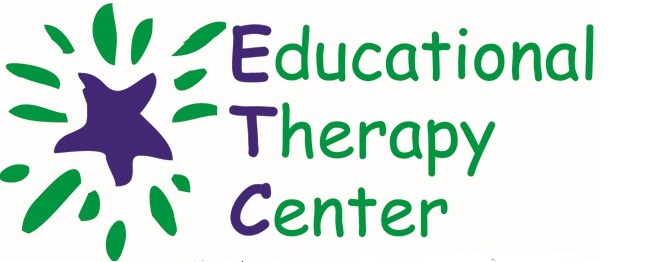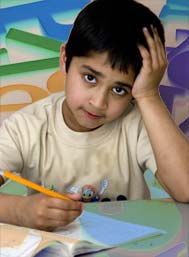DYSLEXIA
Dyslexia is a language-based learning disability. Dyslexia refers to a cluster of symptoms, that result in people having difficulties with specific language skills, particularly reading. Students with dyslexia often experience difficulties with both oral and written other language skills, such as writing, and pronouncing words and writing. Dyslexia affects individuals throughout their lives; however, its impact can change at different stages in a person’s life. It is referred to as a learning disability because dyslexia can make it very difficult for a student to succeed without phonics-based reading instruction that is unavailable in most public schools.. In its more severe forms, a student with dyslexia may qualify for special education with specially designed instruction, and as appropriate, accommodations.
What causes dyslexia?
The exact causes of dyslexia are still not completely clear, but anatomical and brain imagery studies show differences in the way the brain of a person with dyslexia develops and functions. Moreover, most people with dyslexia have been found to have difficulty with identifying the separate speech sounds within a word and/or learning how letters represent those sounds, a key factor in their reading difficulties. Dyslexia is not due to either lack of intelligence or desire to learn; with appropriate teaching methods, individuals with dyslexia can learn successfully.
What are the effects of dyslexia?
The impact that dyslexia has is different for each person and depends on the severity of the condition and the effectiveness of instruction or remediation. The core difficulty is with reading words and this is related to difficulty with processing and manipulating sounds. Some individuals with dyslexia manage to learn early reading and spelling tasks, especially with excellent instruction, but later experience their most challenging problems when more complex language skills are required, such as grammar, understanding textbook material, and writing essays.
People with dyslexia can also have problems with spoken language, even after they have been exposed to good language models in their homes and good language instruction in school. They may find it difficult to express themselves clearly, or to fully comprehend what others mean when they speak. Such language problems are often difficult to recognize, but they can lead to major problems in school, in the workplace, and in relating to other people. The effects of dyslexia can reach well beyond the classroom.
Dyslexia can also affect a person’s self-image. Students with dyslexia often end up feeling less intelligent and less capable than they actually are. After experiencing a great deal of stress due to academic problems, a student may become discouraged about continuing in school.
Are There Other Learning Disabilities Besides Dyslexia?
Dyslexia is one type of learning disability. Other learning disabilities besides Dyslexia include the following:
- Dyscalculia– a mathematical disability in which a person has unusual difficulty solving arithmetic problems and grasping math concepts.
- Dysgraphia– a condition of impaired letter writing by hand—disabled handwriting. Impaired handwriting can interfere with learning to spell words in writing and speed of writing text. Children with dysgraphia may have only impaired handwriting, only impaired spelling (without reading problems), or both impaired handwriting and impaired spelling.
- Attention Deficit Disorder (ADD) and Attention Deficit Hyperactive Disorders (ADHD) can and do impact learning but they are not learning disabilities. An individual can have more than one learning or behavioral disability. In various studies as many as 50% of those diagnosed with a learning or reading disability have also been diagnosed with ADHD. Although disabilities may co-occur, one is not the cause of the other.
How Common Are Language-Based Learning Disabilities?
15-20% of the population have a language-based learning disability. Of the students with specific learning disabilities receiving special education services, 70-80% have deficits in reading. Dyslexia is the most common cause of reading, writing and spelling difficulties. Dyslexia affects males and females nearly equally, as well as people from different ethnic and socioeconomic backgrounds nearly equally.
Can Individuals Who Have Dyslexia Learn To Read?
Yes. If children who have dyslexia receive effective phonological awareness and phonics training in Kindergarten and 1st grade, they will have significantly fewer problems in learning to read at grade level than do children who are not identified or helped until 3rd grade. 74% of the children who are poor readers in 3rd grade remain poor readers in the 9th grade, many because they do not receive appropriate Structured Literacy instruction with the needed intensity or duration. Often they can’t read well as adults either. It is never too late for individuals with dyslexia to learn to read, process, and express information more efficiently. Research shows that programs utilizing Structured Literacy instructional techniques can help children and adults learn to read.
How Do People “Get” Dyslexia?
The causes for dyslexia are neurobiological and genetic. Individuals inherit the genetic links for dyslexia. Chances are that one of the child’s parents, grandparents, aunts, or uncles has dyslexia. Dyslexia is not a disease. With proper diagnosis, appropriate instruction, hard work, and support from family, teachers, friends, and others, individuals who have dyslexia can succeed in school and later as working adults.
Definition of Dyslexia
“Dyslexia is characterized by difficulties with accurate and / or fluent word recognition and by poor spelling and decoding abilities. These difficulties typically result from a deficit in the phonological component of language that is often unexpected in relation to other cognitive abilities and the provision of effective classroom instruction. Secondary consequences may include problems in reading comprehension and reduced reading experience that can impede growth of vocabulary and background knowledge.”
Adopted by the IDA Board of Directors, Nov. 12, 2002. This Definition is also used by the National Institute of Child Health and Human Development (NICHD). Many state education codes, including New Jersey, Ohio and Utah, have adopted this definition. Learn more about how consensus was reached on this definition: Definition Consensus Project. http://eida.org/definition-of-dyslexia/
Symptoms of Dyslexia
The brain of a dyslexic is anatomically different than a non-dyslexic brain. Every dyslexic will have their unique pattern of strengths and weaknesses. One symptom is not uncommon and yet no one symptom characterizes dyslexia or any learning disability. Often, there will be a cluster of symptoms. Some of the more common difficulties are listed below.
- Rhyming
- Word retrieval
- Reading smoothly and with little effort for age
- Writing to reflect verbal knowledge
- Manipulating small objects
- Handwriting
- Learning new vocabulary
- Spelling
- Reading comprehension
- Remembering directions
- Distractibility/restlessness
- Making and keeping friends
- Frustration tolerance
- Knowing the time, date, year
- Completing assignments
Did You Know?
Dyslexia is the leading cause of reading and spelling difficulties. It affects roughly 15-20% of the population.
You may also find Is My Child Dyslexic? from the International Dyslexia Association to be a helpful resource. This 3-page PDF fact sheet lists the common characteristics of dyslexia, as well as other learning disorders, and provides a checklist of suggested instruction methods and further readings.
If you “see your child” in these examples, please contact us to schedule a comprehenive Skill Assessment that will identifiy his or her strengths and weaknesses in 9 key competency areas: Alphabetic Knowledge, Handwriting, Sight Words, Phonological Processing, Phonological Awareness, Phonemic Awareness, Reading Level, Reading Comprehension and Fluency, and Spelling.
It is never too late for individuals with dyslexia to learn to read, or process and express information more efficiently.
Articles
Ben Foss is a successful dyslexic and here is his YouTube video on not hiding in shame because of dyslexia.
Ben also started a group/website called Headstrong Nation. Below is the link for surveys of strengths and attitudes.



